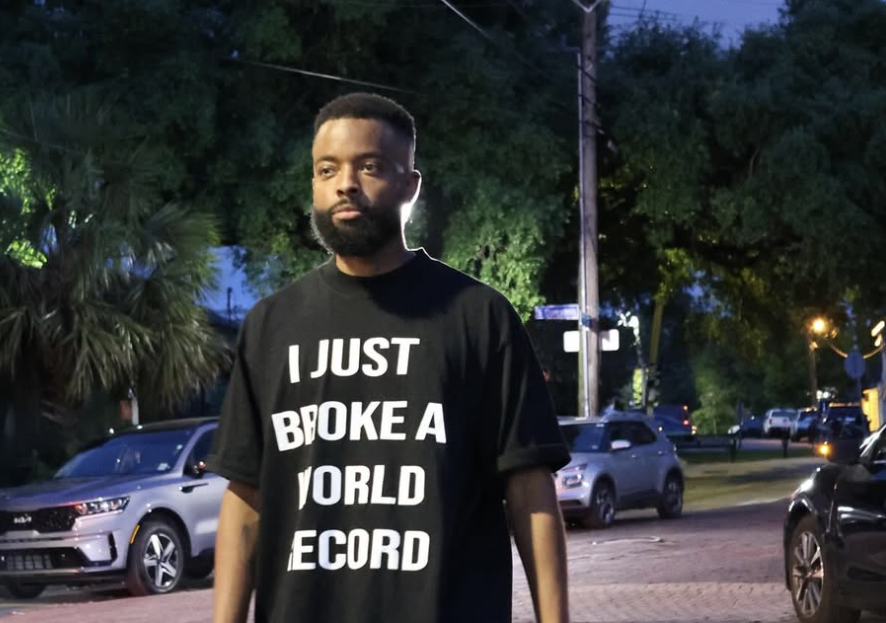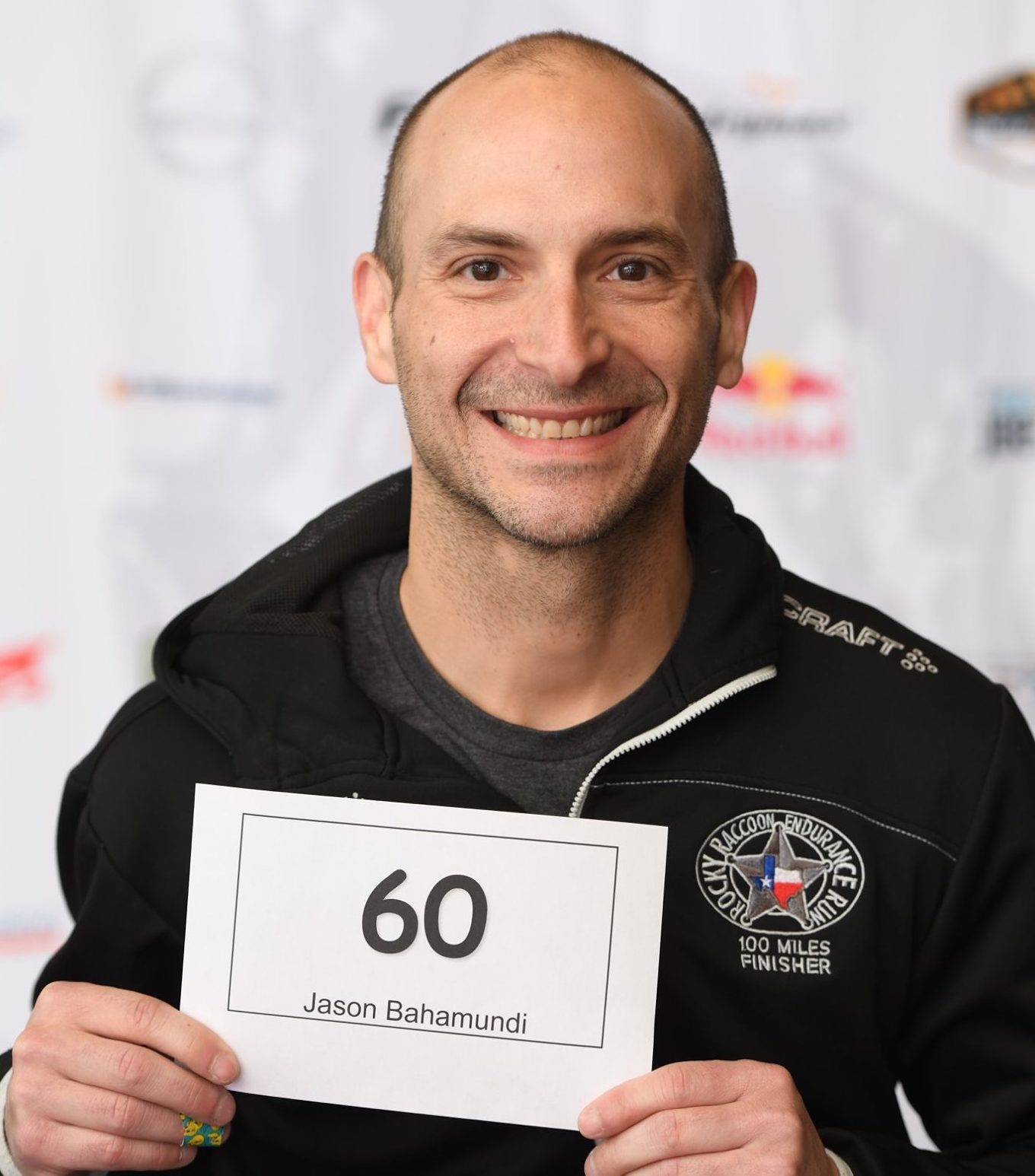Building bEHR Health Through Endurance Sports Principles

Photo Credit: Jarrett Reed
How Kwame Terra Is Building bEHR Health
The morning alarm rings at 5 AM, and most people hit snooze. But for Kwame Terra, it signals the start of another 30-mile walking day as he chased a world record while building bEHR Health, a comprehensive health tracking platform focused on the Black community. This dual pursuit perfectly captures how Kwame applies endurance sports principles to entrepreneurship—proving that the mindset that conquers miles can also conquer markets.
As a former cross-country and track athlete at Xavier University who still holds records, Kwame discovered that the lessons learned on the track translate directly to building a mission-driven business. His journey from collegiate runner to health tech entrepreneur shows how endurance sports shape not just physical capability, but the mental framework needed to tackle complex social problems.
The Starting Line: Finding Purpose Through Crisis
The COVID-19 pandemic became Kwame’s starting gun. While many people retreated indoors, he saw an opportunity to address health disparities in the Black community that the virus had laid bare. “The COVID-19 pandemic was really the tipping point for me,” Kwame explains. “We didn’t really know how bad we’re doing as it relates to our overall health in our community.”
The spark came from an unexpected source—a text message from his aunt. She remembered his previous healthy eating initiatives and suggested he restart them during the pandemic. That simple message became the foundation for bEHR Health, a platform designed to give people a tangible understanding of their health through a comprehensive scoring system.
Kwame’s background as “the resident vegan in the family” and his experiences living on organic farms through work exchange programs had already established him as a health advocate. His journey as what he calls a “satellite student”—traveling to universities across the country while living on farms and attending lectures—had given him a unique perspective on health, community, and systems thinking.
The Training Plan: Building Without Shortcuts
Just as distance running teaches that there are no shortcuts to fitness, Kwame learned that building a successful health tech company requires the same patient, consistent approach. “The coolest thing to me about distance running is that there are literally no shortcuts,” he says. “Endurance sports in general, there are no shortcuts.”
This philosophy shaped his approach to business development. When venture capital firms rejected his early pitches, Kwame didn’t get discouraged. Instead, he applied the mathematical mindset of training to his fundraising strategy. He applied to 80 incubator and accelerator programs, believing that a success rate around 10% would be what he needed. This systematic approach netted him acceptance into eight programs and over $80,000 in grants and pitch competition winnings in his first year.
His training at Xavier University for his Master’s in Public Health with a concentration in health equity provided the academic foundation, but it was his athletic background that gave him the mental tools to persist through rejection and iterate on his ideas. “Even though I’m super ambitious, I set bold goals that are always rooted in identifying the activities necessary to give me the best chance of achieving the desired outcome,” Kwame explains.
ADVERTISEMENT

The Long Run: Community Over Technology
What started as a technology-focused health tracking app has evolved into something more meaningful—a community-driven platform that creates health-promoting life experiences. This pivot reflects Kwame’s understanding that sustainable health, like sustainable running performance, comes from lifestyle integration rather than obsessive metric tracking.
“If, at the end of this work, I have created a group of people who are obsessed with tracking their calories, their steps, and their resting heart rate, that doesn’t strike me as health,” Kwame reflects. “What we’re trying to do is create a health-promoting life experience for people—so when I look outside and see women walking together in community or sharing a communal dinner—because life is health, and your life should be health-promoting—that is the solution I’m actually bringing.”
This community focus emerged from an unexpected source: a 16-year-old intern, Jaleah Carter, had an idea for a Mardi Gras step challenge. That simple concept, which earned her an equity stake in the company, became the foundation for bEHR Health’s engagement strategy, leading to partnerships with run clubs across the country and step challenges that give away prizes like Super Bowl tickets. The success of these community-driven initiatives taught Kwame that the ultimate goal is not the technology itself, but how it facilitates meaningful connections and shared goals.
Race Day Performance: The World Record Attempt
Kwame’s commitment to walking the walk—literally—culminated in his attempt to break the world record for most steps in a month. The challenge required walking over 30 miles daily, about twelve hours of movement each day, while simultaneously running his growing company.
“The first five days were brutal, absolutely brutal,” Kwame recalls. “Day three, I started getting sharp pains in my head, dehydration, just lack of fuel in general.” But like any endurance athlete, he pushed through the initial discomfort and adapted his nutrition and recovery strategies.
The world record attempt wasn’t just a personal challenge—it became a proof of concept for bEHR Health’s mission. Users who participated in million-step monthly challenges experienced dramatic health improvements. One doctor participant lost 20 pounds and was taken off blood pressure medication. These results validated what Kwame had suspected: simple, sustained movement could address the chronic conditions plaguing his community.
“Our company’s goal was to predict, prevent, and reverse the chronic conditions plaguing our community—and we did it with one simple suggestion,” he says.
The Next Marathon: Building for Legacy
Two and a half years into his entrepreneurial journey, Kwame has reached what he calls his ideal position—complete control of his company with the official bEHR Health app launching this fall. Unlike many startup founders who rush toward acquisition, Kwame’s endurance sports background has taught him to value long-term sustainability over quick wins.
This patient approach reflects the mindset that has carried him through years of training and racing. Just as he tells his running friends that it took him 20 years to develop his current speed, he understands that building a platform that truly serves his community will take time and sustained effort.
Looking ahead, Kwame is planning another world record attempt—this time for the largest virtual challenge, the “bEHRrathon,” with a goal of one million participants to coincide with bEHR Health’s official app launch. This ambitious goal reflects both his endurance sports background and his understanding of what it takes to create lasting change in community health.
ADVERTISEMENT

Lessons from the Track to the Boardroom
For everyday athletes considering entrepreneurship, Kwame’s journey offers several key insights. First, the mental skills developed through endurance sports—patience, systematic thinking, and comfort with discomfort—directly transfer to business building. Second, community and meaning matter more than metrics, whether you’re talking about running groups or user engagement. Finally, sustainable success requires the same approach in business as in distance running: consistent daily effort over years, not months.
“To me, five to 10 years to success is overnight success,” Kwame says. “It’s just 10 years of your life. You’re going to spend 10 years trying to grow your career at a job, you’re going to spend 10 years trying to become a doctor. That is overnight to me.”
His advice for aspiring entrepreneurs mirrors what any good running coach would say: focus on the process, not the outcome. “Find out what your ratio is and work that ratio until you get what you want,” he suggests, referring to his systematic approach to applications and iterations.
bEHR Health’s evolution from a technology platform to a community-driven health movement shows how endurance sports principles can guide mission-driven entrepreneurship. By treating business building like distance running—with patience, systematic effort, and a focus on long-term goals—Kwame has created something that goes beyond profit to address real community needs.
As he prepares for the bEHRrathon and the official app launch, Kwame continues to apply the lessons learned from years of training and racing. The same mindset that helped him set records at Xavier University now drives him to break barriers in health technology, proving that the principles that make great athletes can also make great entrepreneurs who change the world.
His story reminds us that whether we’re chasing personal records on the track or building companies that serve our communities, success comes not from shortcuts or overnight transformations, but from the daily discipline of showing up and doing the work—one step, one day, one iteration at a time.








